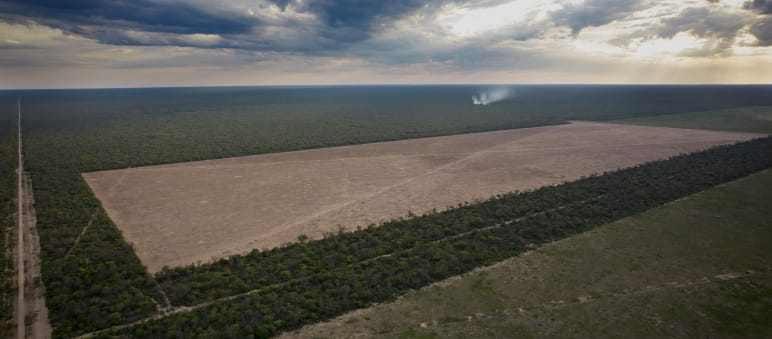
Court suspends deforestation of Argentina‘s Chaco
Argentina: In late June, we launched a petition calling for an end to deforestation in Argentina’s Chaco region. Now a court has responded by suspending a scandalous decision by the parliament of Argentina's Chaco province that would have opened up vast areas to deforestation by the soy, beef and charcoal industries.
Since the end of June, more than 70,000 people have signed our petition to protect the Chaco forest in Argentina. Through this effort, we have raised international awareness and protests against the impending deforestation of the Chaco. Now we are getting the first reactions from Argentina: Logging has been suspended!
On August 19, a federal judge issued a precautionary order halting all logging in the entire Chaco province for a period of three months, with the possibility of extension. With this decision, the judge ordered the government and the Ministry of Production and Sustainable Economic Development of Chaco Province to suspend all logging permits.
A few days earlier, the Chaco Public Prosecutor's Office filed charges against high-ranking officials, legislators and companies for crimes ranging from abuse of authority and embezzlement of public funds to the creation of criminal organizations. The office also demanded an immediate halt to logging activities.
The judicial authorities were responding to a criminal complaint filed by the Argentine Association of Environmental Lawyers on July 3, 2024. The accused are said to have enriched themselves through ecocide in the province, benefiting from a network of corruption that profits from the destruction of the Chaco forest.
“We at the Argentine Association of Environmental Lawyers welcome the prosecutor's request, which represents a decisive blow against the deforestation mafia in the Chaco – a criminal organization that has devastated thousands of hectares of native forest for its own profit through a web of corruption.”
Lucrative deals for lawmakers, officials and businessmen
The requests for investigation target a number of people who held positions that allowed them to favor their own lucrative businesses. For example, forestry managers became ministers, and forestry officials and deputies became forestry entrepreneurs.
The crimes charged include abuse of office, dereliction of duty, influence peddling, negotiations incompatible with public office, and embezzlement of public funds.
In addition to individuals, investigations are being conducted against companies such as Vicentín, Las Guindas, Establecimiento Monterrey, Cuenca del Salado, Grupo Buratovich Hermanos, MSU, TRIAD, Alejandro Hayes Coni, Ricardo Shihon and Jerilderie, CIGRA, La Nueva Pirámide, and others.
The authorities must act decisively and quickly to reverse the law that favors deforestation. This is the case with the Territorial Ordinance of Native Forests (OTBN), which has been implemented in an irregular manner, tailored to the logging companies and the criminal network that surrounds them.
For the well-being of the Chaco people, their ecosystems and their forests, justice must be done. They can no longer allow nature to be exploited for the economic benefit of a few.
“This ruling is a respite for the Chaco forest and its people. We will continue until we have dismantled the deforestation mafia,” said the Association of Environmental Lawyers.
The Chaco Forest in South America
The Chaco dry forest is one of the most important ecological regions (biomes) in South America, along with the Amazon rainforest. Covering nearly 800,000 square kilometers (an area more than three times the size of the United Kingdom), it stretches across parts of Paraguay, Bolivia, Brazil and Argentina.
The old-growth forests of Argentina’s Chaco province are vital to local people, biodiversity, soil conservation, water management and global climate stability. But they are being cleared by the timber industry and for charcoal production, as well as to make way for cattle ranches and soy monocultures.